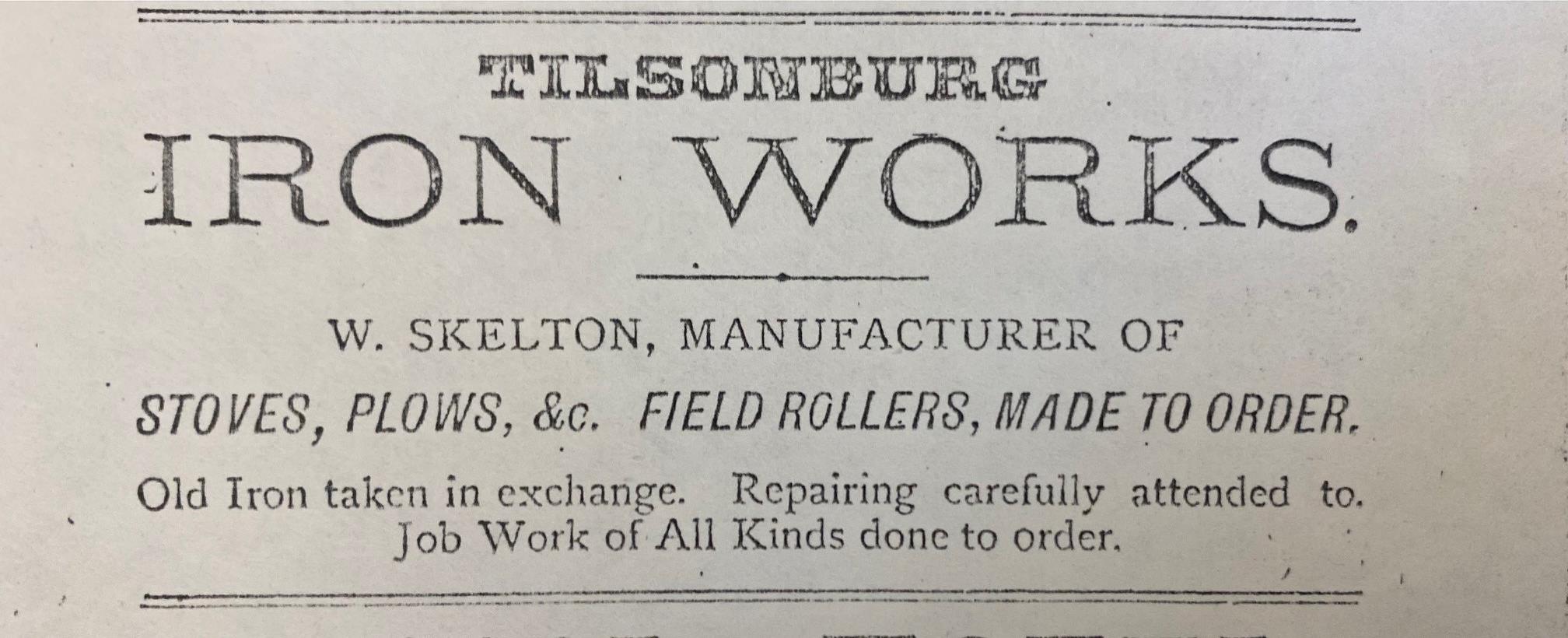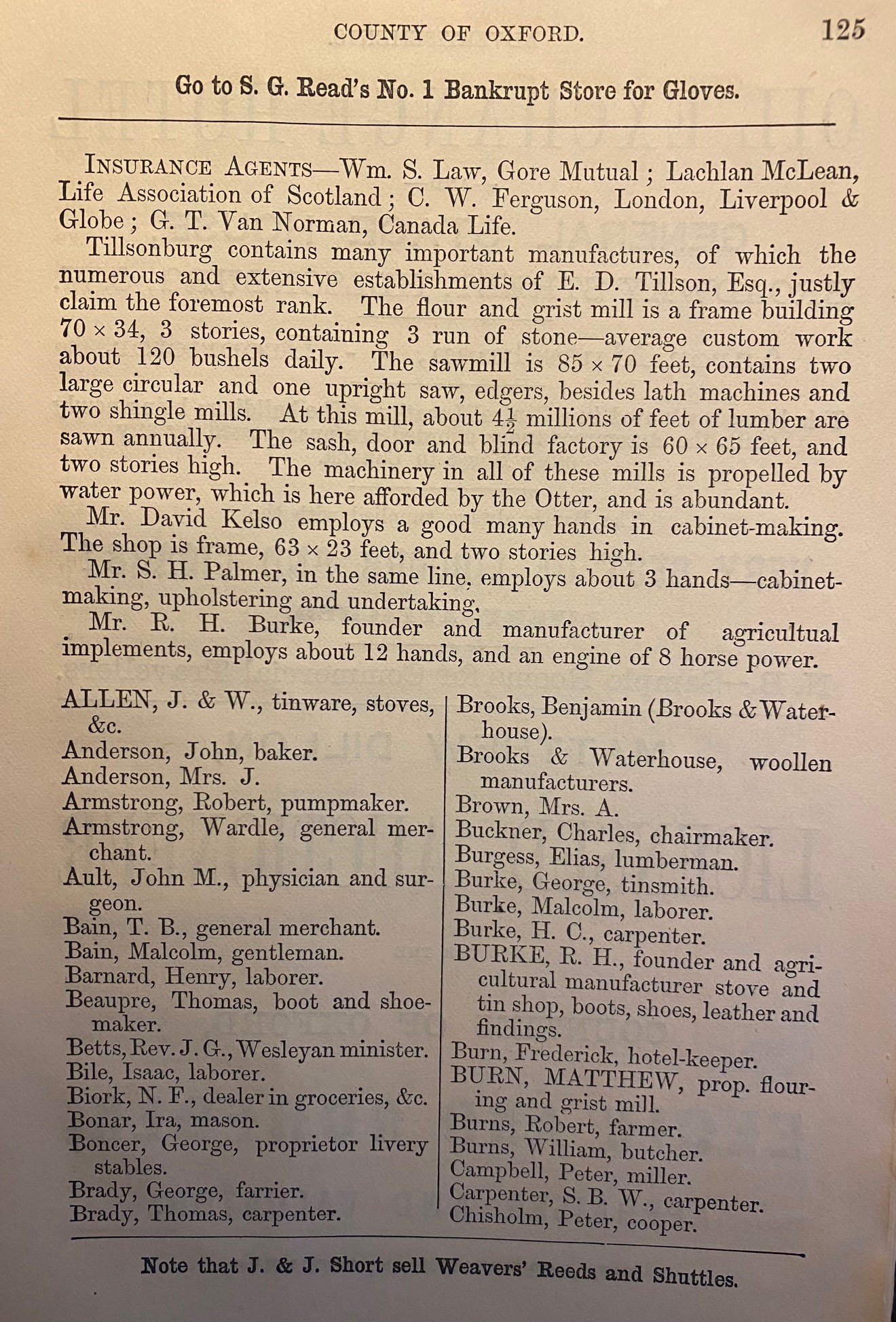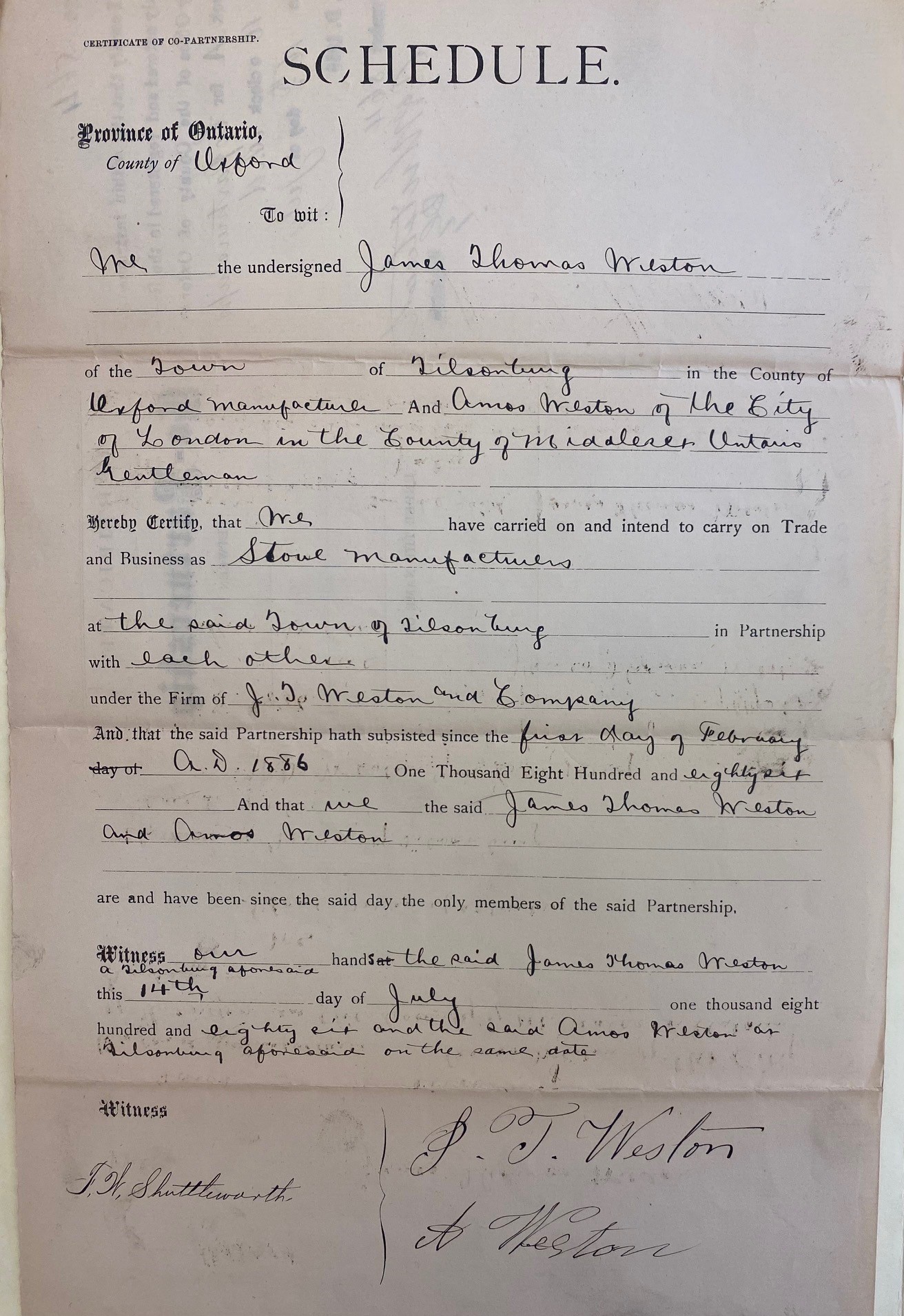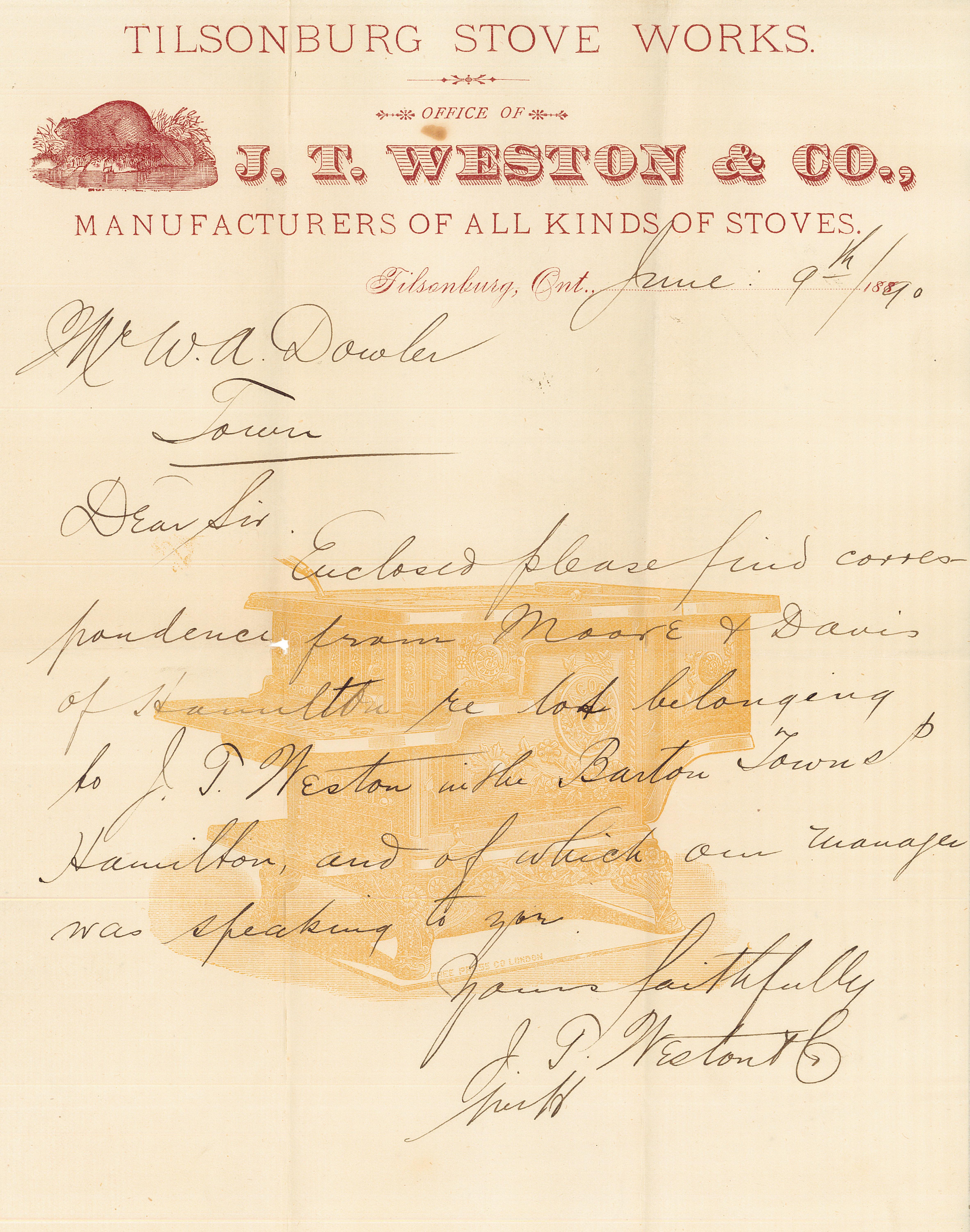One of the early industries in Tillsonburg was that of metal-fabricating. Aaron Avery, of Norwich, founded the Tillsonburg Iron Works at the foot of Broadway. Like other businesses of the time, it would have drawn power from the waterways in town and, in this case, the Tillson mill-race. The company built everything from steam engines for factories and farms, to cheese presses, and various farm implements. Following the death of Avery in 1864, the business passed into the hands of James and William McMaster who moved the business to Concession Street at the corner of Frank. By the 1880s, William Skelton was proprietor.

Advertisement for Skelton's iron works from the 1881 directory.
By the 1870s, George Darrow was operating a foundry known as Union Foundry; though by the 1880s the business had expanded to include John Darrow and was referred to as G & J Darrow. Located on Rolph Street, the business included a foundry as well as a machine shop. Born in Tillsonburg on September 20, 1833, George lived in town until his death on February 20, 1897. He is buried in the Tillsonburg Cemetery.
 Another business related to metal work was that of Richard Henry Burke, who specialized in metal roofing and tinsmithing. Born in Rochester, New York on December 1, 1821, he immigrated to Canada and set up shop in Tillsonburg. In the 1870-1872 Oxford Gazetteer and Directory, Burke was listed as a founder and agricultural manufacturer, as well as operating a stove and tin shop. His business employed about twelve hands and had an engine of eight horse power. Located on Broadway, his wares included cooking, parlor, and box stoves, eavestroughs, and even Japanned ware (Japanese lacquerwork popular at the time). According to his obituary, he was one of the pioneers of the town, with “there being only one brick house in the place when Burke came here.” Burke would pass away on November 19, 1894 and was buried in the Tillsonburg Cemetery.
Another business related to metal work was that of Richard Henry Burke, who specialized in metal roofing and tinsmithing. Born in Rochester, New York on December 1, 1821, he immigrated to Canada and set up shop in Tillsonburg. In the 1870-1872 Oxford Gazetteer and Directory, Burke was listed as a founder and agricultural manufacturer, as well as operating a stove and tin shop. His business employed about twelve hands and had an engine of eight horse power. Located on Broadway, his wares included cooking, parlor, and box stoves, eavestroughs, and even Japanned ware (Japanese lacquerwork popular at the time). According to his obituary, he was one of the pioneers of the town, with “there being only one brick house in the place when Burke came here.” Burke would pass away on November 19, 1894 and was buried in the Tillsonburg Cemetery.
Finally by the 1880s, James Thomas Weston and John E. Weston established the Tillsonburg Stove Works, which by the mid 1880s was producing around 4,000 stoves annually. These stoves ranged from the simple to the ornate. By the early 1900s, their business had expanded to include everything from stoves and ranges, to furnaces, dairy supplies and even dining room and bedroom furniture.

Declaration of partnership for J. T. Weston & Co. of Tillsonburg, 1886

Letterhead for J.T. Weston & Co. [courtesy of Annandale N.H.S. & Museum]